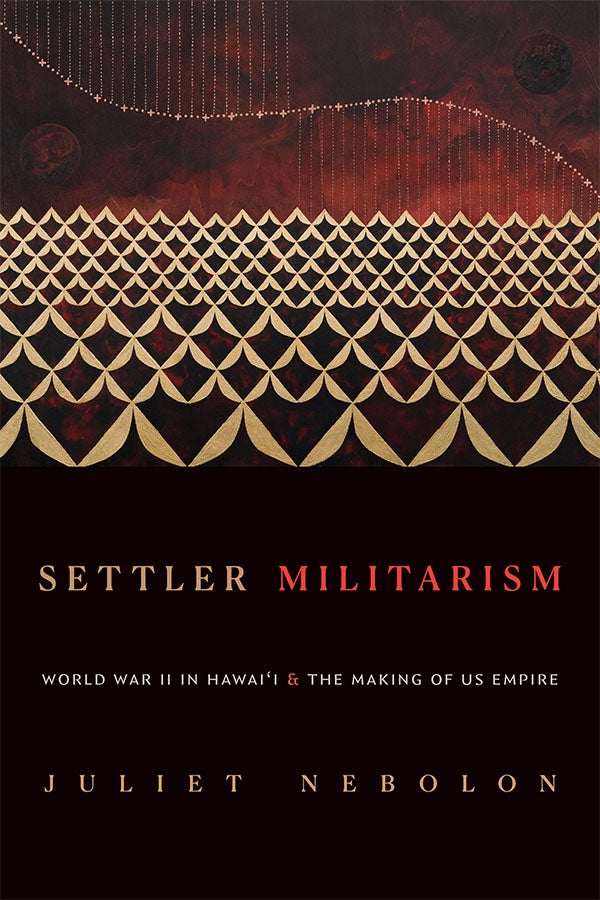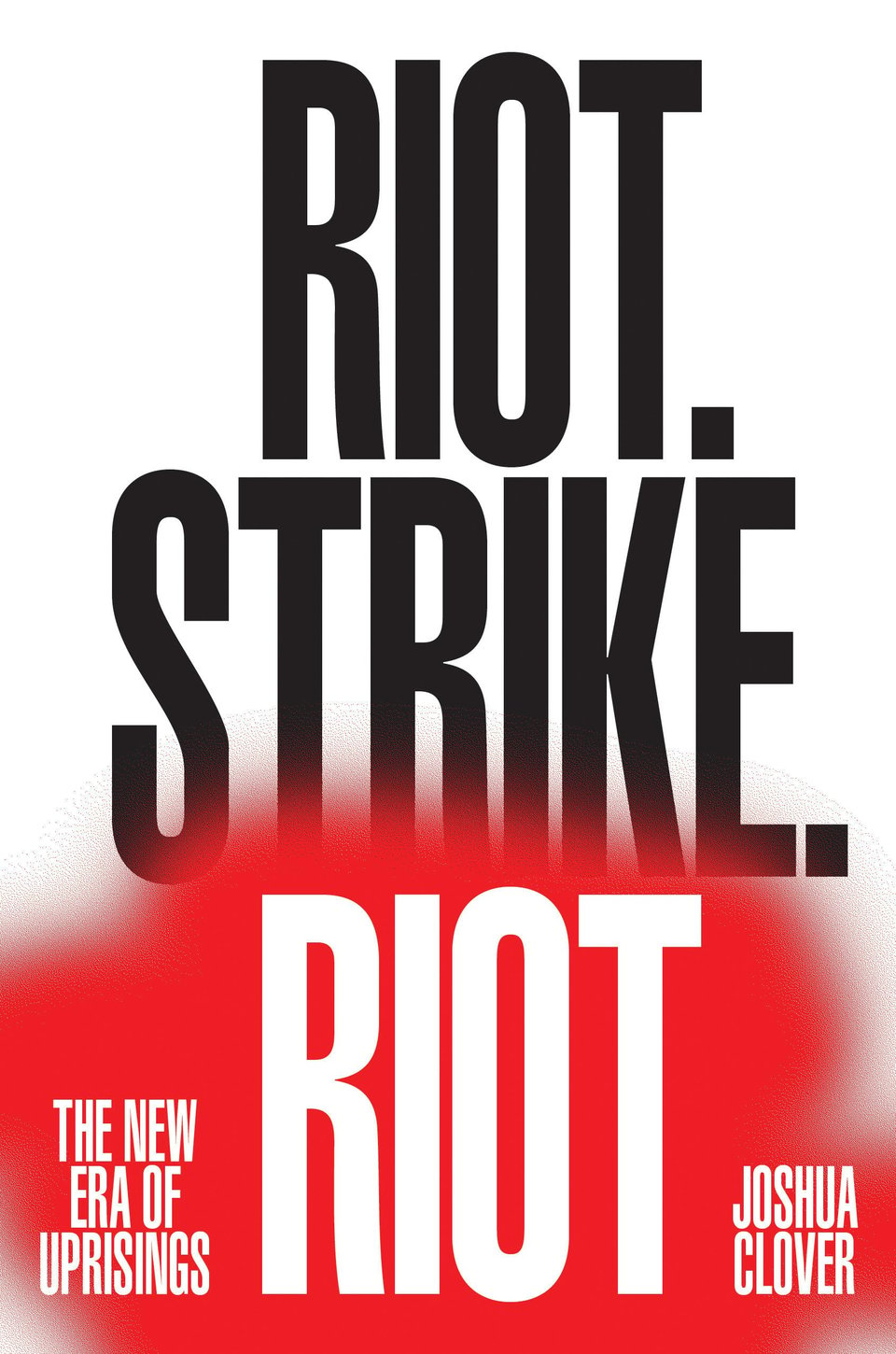Reading Group Week 19
Hello. Thanks for joining me.
This week we're continuing Settler Militarism: World War II in Hawai'i & The Making of US Empire by Juliet Nebolon

Readings
This week, let's read chapter 3: "The First Line of Defense Is Our Home": Settler Military Domesticity in World War II-Era Hawai'i.
| Week | Date | Reading | Call |
|---|---|---|---|
| Week 1 | May 12 | Intro + Chapter 1 | May 17 |
| Week 2 | May 19 | Chapter 2 | May 24 |
| Week 3 | May 26 | Chapter 3 | May 31 |
| Week 4 | June 2 | Chapter 4 | June 7 |
| Week 5 | June 9 | Chapter 5 + Conclusion | June 14 |
Reflections
Chapter 3: "The First Line of Defense Is Our Home": Settler Military Domesticity in World War II-Era Hawai'i
Domestic scientists such as Miller wielded the cultural capital forged by their careers to create racial hierarchies of health that aligned with the colonial asymmetries of settler militarism by marginalizing immigrant diets and denying the persistence of Kanaka Maoli foodways. (pg 85)
... these wartime nutrition campaigns propagated the ruse that settler militarism and capitalism were invested in the production of life instead of aiding the primitive accumulation of land and labor. The recipes and health recommendations disseminated by these committees—which were predicated on the extraction of food and land-based knowledge from Asian settler and Kanaka Maoli families—claimed to improve the health of people of all races, yet they also centralized settler military domesticity as the dominant model for assimilation, intensified the regulation of immigrant and Native diets, denied the vitality of Hawaiian foodways, and masked settler colonial histories of Native land dispossession. (pg 88)
This racialized and gendered division of reproductive labor enabled Miller and Erwin to preserve a private life that differed from the institutionalized discourse that they espoused: it was the employment of racialized domestic workers that allowed them to cultivate an image of respectable white femininity while remaining unmarried, continue full-time work in home economics and nutrition, and participate in the community activities expected of their middle-class position during the war. (pg 100)
This chapter kind of stunned me with the turn at the end, but I shouldn't have been nearly as shocked as I allowed myself to be. There are plenty of analyses of white women exploiting settler colonial, patriarchal, white supremacist power dynamics to carefully and selfishly carve out space for their own relief, often at the narrow and broad expense of other communities. So should I be surprised to see that these two tremendously exploitative academics (academics, a whole additional conversation to have) extracted for themselves the means to live at arm's reach of oppressive and violent gender and sexuality norms, while literally writing and lecturing indigenous people and Asian settlers on exactly the norms from which they were themselves buying reprieve?
While I was reflecting on this chapter, I found myself meandering, thinking about white academics in my past and current life who have found ways to buy themselves distance from confronting or even tangentially speaking about what Israel is doing to Palestine - an apartheid state now turned site of genocide.
Many of them still follow me on social media; they still engage with my writing when it doesn't foreground Palestine and instead uses keywords like AI and algorithmic violence. I think of them often; I could name them here - the people I have given up hoping would demonstrate any humanity. I wonder if they would even see this, or if they really completely disconnect from me as soon as they sniff amy hint of talking about Palestine.
... I'll digress. I have history, baggage, you might say functioning memory, when it comes to my expectations and hopes of mostly-white academics to say or do anything in the face of what we're seeing. And I think reading about Miller and Erwin reminded me that the uselessness of white liberals in any project other than their own gain and escape from oppression cannot be underestimated. Apparently it has exceptionally deep roots, as well.
In the signal chat I linked to a video about Puerto Rico (that's incidentally also about Hawai'i) and how the United States radically changed the agriculture of Puerto Rico (and Hawai'i) for the sake of plantation agriculture, and how this change has caused dramatic increases in diabetes and heart disease rates among people in Puerto Rico who had previously eaten indigenous foods. It depicts some similar but also some different dynamics that took place in Puerto Rico (notably, of course, Puerto Rico didn't serve as the "war front"/"home front" site as the launching pad for a war in the "Pacific theater").
You can watch it here if you have ~15 minutes.
I also wanted to call out this quote.
Despite the wartime pressures to foster family health according to the racialized and colonial standards of the military government, immigrant and Native families negotiated and resisted these assimilationist regimes, often exhibiting their distaste or neglecting to adhere to them. For example, as Charlotte Wakugawa, a Nisei, recalled of her family nutritional practices, "Instead of milk, tofu was considered the most important food in the diet." Eleanor Maeda, a Sansei, recalled that she was never served milk at home as a child because to her grandmother, "Drinking milk and having food supplements were considered unnecessary and too 'haolified'." Despite these differences among Asian settler family nutritional practices, it was quite common for children to receive milk as part of a morning snack or lunch at school. As Setsuko Matsubara remembers, "I do remember that in kindergarten we were required to drink milk and I can still see myself holding my nose and gulping down the milk with bites of graham crackers in between." Pauline Apuna, who was Chinese-Hawaiian, remembered that "since my father had little education he regarded milk as an added expense, so I did not have it until I had an allowance with which I could buy milk [I was about 12 years old then]." This memory of saving her allowance to buy milk indicates both her father's ambivalence toward milk and also her desire to abide by nutritional guidelines.
Maybe my work - my whole brand - has turned into being drawn in by any forms of resistance to hegemonic, oppressive systems (usually algorithmic, but white nutrition epistemology is a kind of algorithmic hegemony, isn't it?), so maybe unsurprisingly I was super interested in these anecdotes and I would have happily followed a whole chapter-long digression about people avoiding eating disgusting-sounding "haolified" food and supplements. I just found it fascinating. I'm really curious if you thought anything of it as well.
Share your reflections
I'd like to hear what connections you're making in reading this chapter about food, agriculture, and nutrition. We've been having good conversations in the video chats and people are sharing good links and thoughtful contributions in the signal chat.
If you'd like to chat with me and/or the rest of the people in the Signal group chat, I'd love to see you there.
Otherwise, let's chat on Saturday at 12pm ET, during the weekly video call.
Other news
Next book
Our next book will be Riot. Strike. Riot by Joshua Clover 
If you buy the book from Open Books, the proceeds will go to Palestinians in Gaza via The Sameer Project. If you can't buy these books via the Open Books shop, please consider donating directly to The Sameer Project.
Support people in need
If you have extra funds, please donate directly to the Sameer Project.
Support the reading group
You can also support the reading group if you have a few dollars to spare per month. Don't worry if you can't support, but if you can, it would help.
Okay, that's everything. If you're in the signal, I'll chat with you there; otherwise, see you either on Saturday for the video chat, or next Monday.
PS: I've stopped doing round-ups of news stories and links from the past week. Did people want me to keep doing it? Was it just more stuff to read? Let me know if you have thoughts about it. Or if I can change things in general. Thanks.